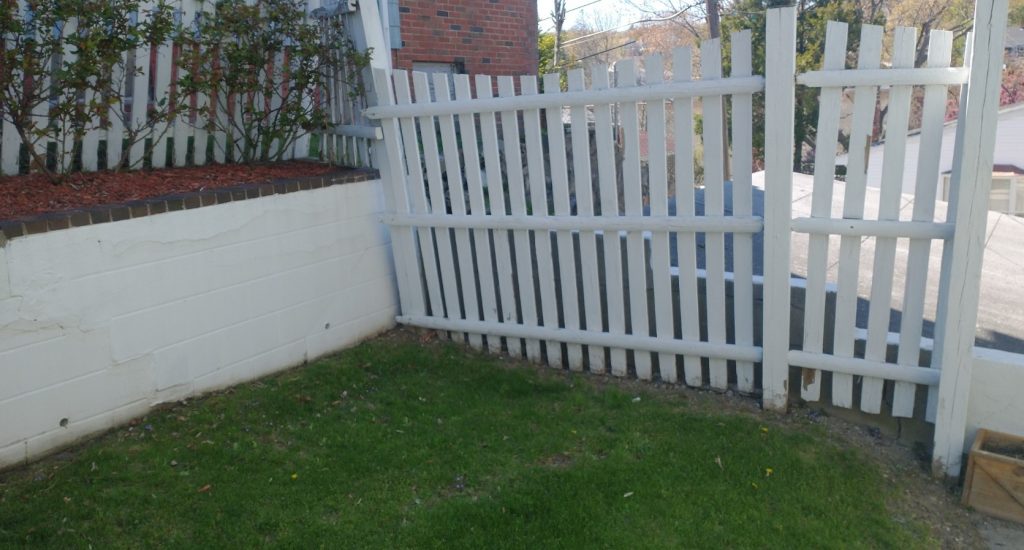Putting Up a Fence: Three Ways to Stay Out of Trouble

Many property owners are shocked to learn about the many legal implications that can arise from the seemingly simple act of putting up a fence around one’s yard.
From my experience in handling boundary disputes among neighbors, I would estimate that most of these problems arise from the construction of an unwelcomed fence. Here, I’ll share some advice on how to avoid such problems.
As a rule, I never give advice that I don’t follow myself, and here is no exception. The picture above is the fence in my yard, that is falling apart and in need of repair. I’ll be following my advice below to avoid any problems of my own when I replace it this spring.
Speak to Your Neighbors
It’s always a good idea to reach out to your neighbors before putting up a fence. In many cases, you aren’t legally required to, especially if the existing fence is yours and on your property. Many potential problems with fences, however, can be avoided by simply speaking about the matter with your neighbors in advance.
Many times, your neighbor will have no complaints, and will sincerely appreciate your courtesy, which can go a long way if a problem ever arises in the future.
Massachusetts law prohibits the erection of a “nuisance fence” that is “maliciously erected or maintained for the purpose of annoying the owners or occupants of adjoining property.” Be sure that any fence you build does not violate this law.
Know Your Property Line
Putting up a fence should only be done on your property. If you build a fence on property that is not yours, the property owner has a legal right to file a lawsuit to order it taken down (with a possible claim for trespass against you). This can be an expensive mistake!
If you aren’t sure about your property lines, you can have your property surveyed by a licensed surveyor, who will be able to determine your exact boundary lines.
Check Your Local Zoning Ordinances
Massachusetts towns and cities regulate the use of property through zoning, which are local ordinances that restrict what structures may be built on land.
Zoning often regulates the height and width of fences. Additionally, many zoning ordinances have setback requirements, which prohibit structures, such as fences, from being built too close to an adjacent property.
Before putting up a fence, always check with your local building department to learn these requirements. Your town or city can (and likely will) fine and take you to court if you violate these rules, so it’s best to avoid such a problem in the first place.
Final Thoughts
My hope is that all Massachusetts property owners follow this advice and avoid all the potential problems that can arise when putting up a fence.
If, however, you are ever involved in such a legal matter, contact me for a consultation.
